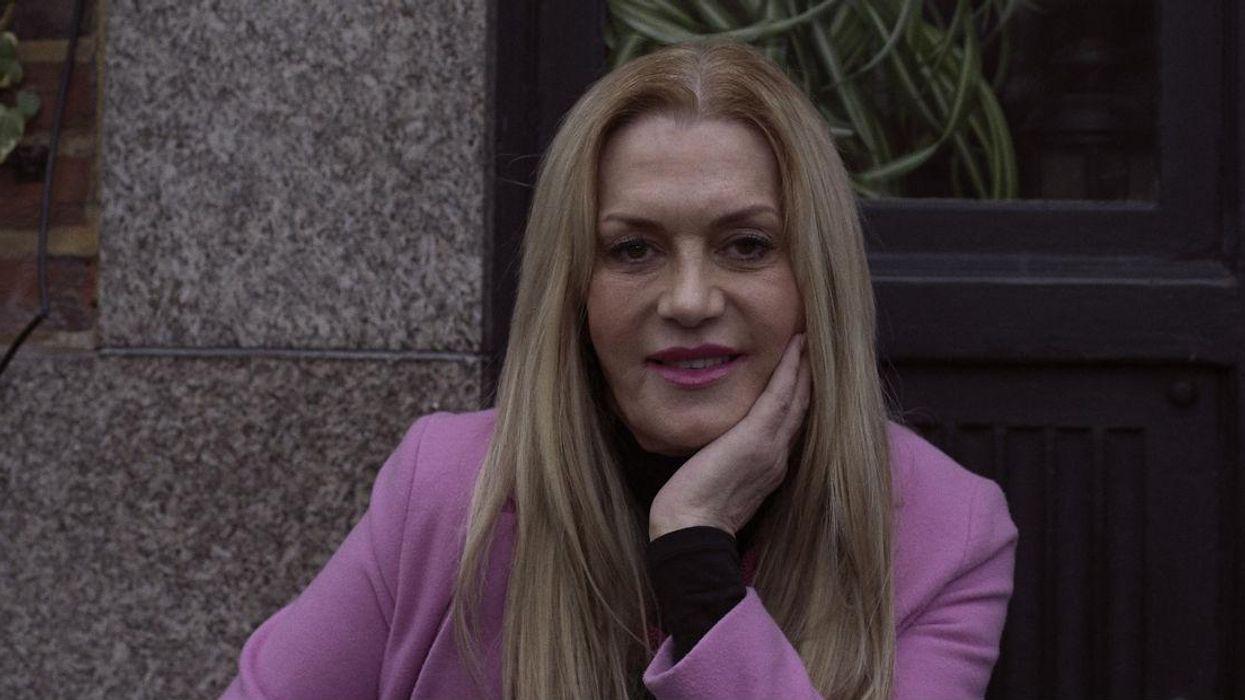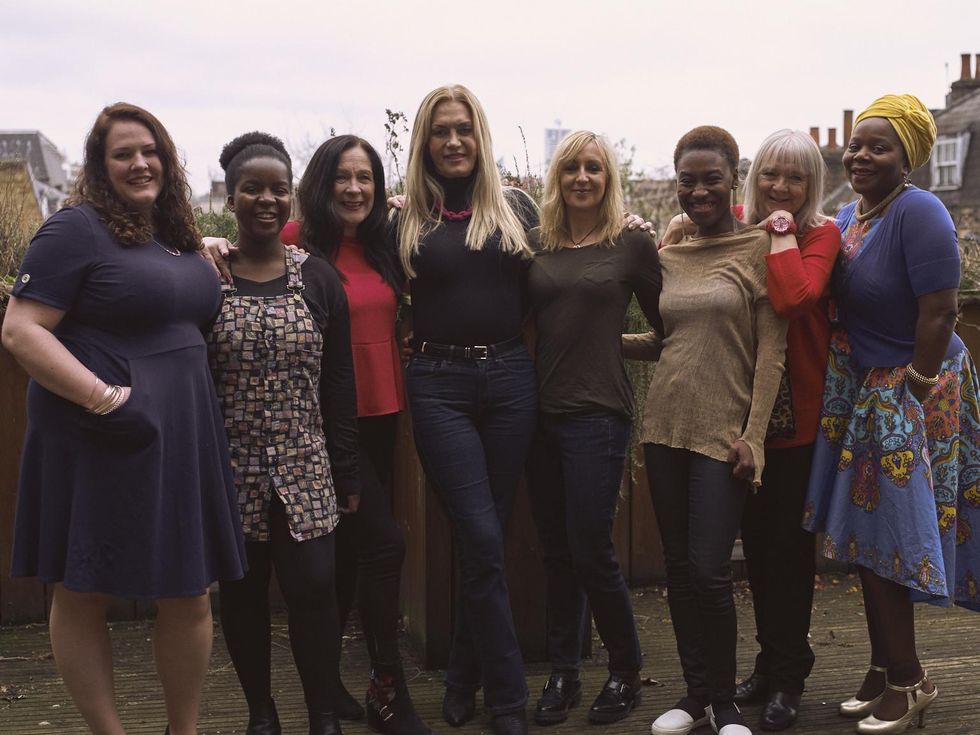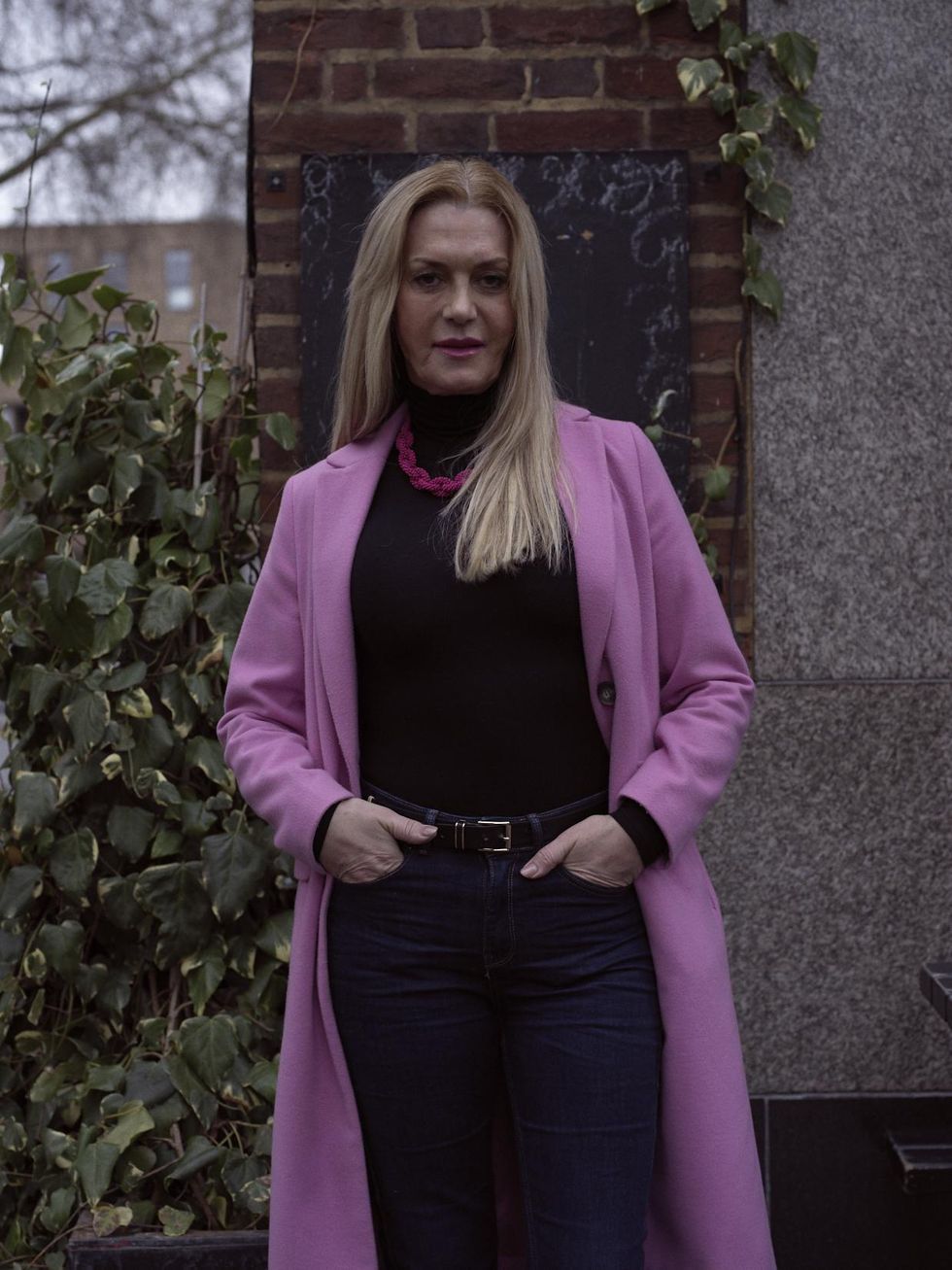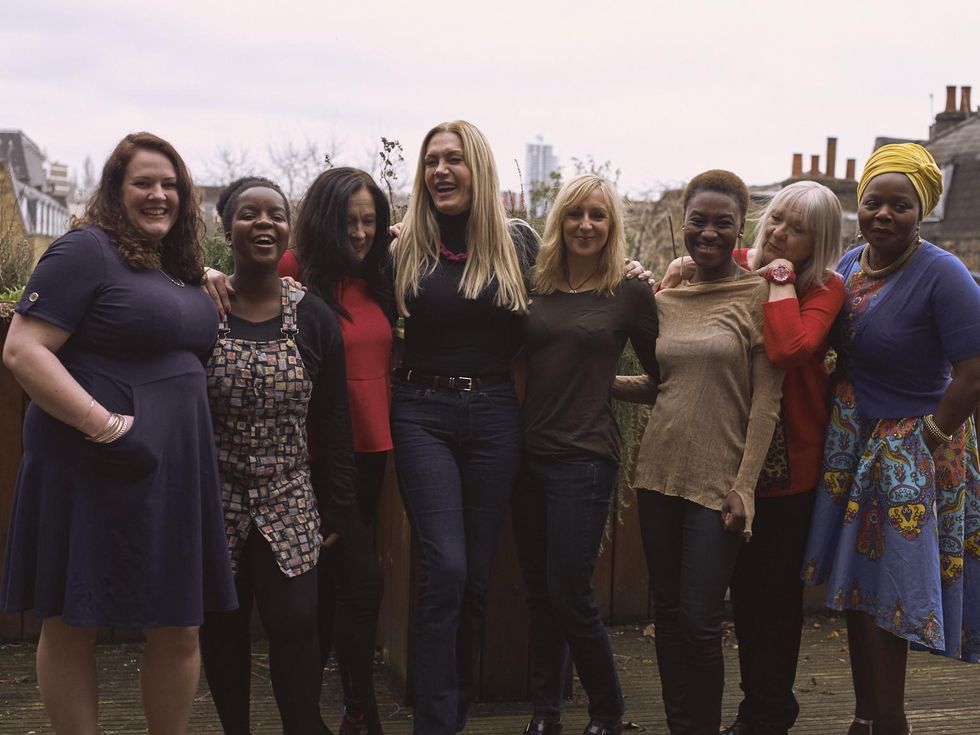Celebrities
Jake Hall
May 02, 2018

Photo: Charlotte Hadden, courtesy of Terrence Higgins Trust
Since 1988, December 1st has been designated as World Aids Day, a time to unite in the fight against HIV, commemorate those who have died from Aids-related illnesses, and to show support for those living with HIV.
When I was first diagnosed with HIV in the 1980s, it was seen as a death sentence. You were treated like a leper; people wouldn’t kiss you, and they would barely hug you.
It’s taken Rebecca de Havalland almost three decades to find the confidence to speak openly about her experiences of living with HIV. For years, she had hidden her story; it wasn’t until she overcame a life-threatening case of pneumonia back in 2013 that she felt she had nothing to lose by finally being open about her status.
“My hair started falling out – I was in a really bad place.”
It was then that I made the decision that I would have to stop lying to myself and being in denial.
“I had to stop pretending that these things weren’t happening.”
Since then she’s built a reputation as an activist and an educator, working closely with sexual health charity Terrence Higgins Trust to raise visibility of women living with HIV. “As a trans woman myself, I started to realise that there was a lot of stigma around being a woman who is also HIV-positive. People treat it differently, and they treat us differently as well.
We’re very unseen – because of that lack of visibility, there’s very little out there to help us.
This lack of discussion sparked the commissioning of a recent Women’s Report in collaboration with Sophia Forum, as well as an accompanying campaign entitled ‘Invisible No More’, led by various women living with the virus. While the campaign carried out the crucial work of diversifying narratives around HIV, the report itself unearthed a series of shocking findings.

The first, perhaps most surprising result is that women make up one third of people living with HIV in the UK. This is a statistic which unequivocally disproves the assumption that the virus almost solely affects gay and bisexual men, no doubt a misconception which stems from initial media coverage as a “gay plague”. Of these women, almost half live below the poverty line. Furthermore, 45 per cent report that they have experienced violence directly linked to their HIV-positive status. Other studies corroborate these findings, demonstrating that rates of intimate partner violence are frequently higher among women living with HIV.
But the report also shows that these women are strong. Despite stigma, erasure and the ongoing lack of discussion, almost half described their life as either ‘good’ or ‘very good’.
This could tie into the recent breakthroughs in HIV-positive healthcare. Now, anti-retroviral treatment (ART) has been proven to actively suppress viral load to the extent that it becomes ‘undetectable’. In a nutshell, this means that daily medication can make it safe for HIV-positive people to have unprotected sex without fear of transmission.
“It is amazing,” enthuses Rebecca.
The fact that treatment has advanced to the extent that a pregnant mother on medication now can’t pass the virus on to her unborn baby… It’s a far cry from the media coverage when I was diagnosed, which was basically just tombstones falling from the sky.
It’s not just viral load management drugs either; a preventative drug, PrEP (pre-exposure prophylaxis) was last year rolled out as part of an NHS trial, meaning that 10,000 participants could sign up to take the drug without paying. If successful, it could lead to the treatment being officially commissioned by the NHS.
These are breakthroughs, but Rebecca argues that they shouldn’t lead to complacency.
“Always use a condom just in case,” she advises sagely. “I see these articles, but they do kind of make me want to say to people:
‘Yes, there are drugs, but you’re on them for the rest of your life, darling!’
“Medication might have improved, but not to the point that we don’t have to take them every day. We might take a smaller dosage, but those pills are still a daily reminder that you’re HIV-positive”.
Demographic statistics also show that women are under-represented in the trial. Rebecca aims to remedy this, immersing herself in discussions with women on a regular basis.
“My work partner and I actually go to a lot of bars in Soho [in London], so we get to pass these messages on to a lot of women. They’re actually astounded when they hear. We could be talking to girls in gay bars who then take that information on board, go home and discuss it with their boyfriends. It’s important to let people know that it hasn’t gone away.”
She also recalls a ‘boot camp” for trans women she hosted back in 2016, during which she managed to convince a series of attendees to start taking PrEP.
“Even later in life, it’s important.”
I know women in their 50s who have already had their families, they’ve been in a bubble.
They thought that HIV couldn’t possibly affect them or their lives, but then they became single and things just changed.
It’s at this point that Rebecca highlights the fact that there is no universal HIV narrative, drawing from her own life story as an example. Incidentally, she penned a memoir back in 2011, His Name is Rebecca, and became somewhat of a celebrity in Ireland - although she made the choice not to disclose her HIV status for fear of stigma. “Can you believe it? I’m a recovering alcoholic and I felt comfortable putting that in, but not this.”
Even a 30-minute conversation with Rebecca reads like a screenplay. She describes a life filled with excitement with tragic twists along the way; but in her hands, even the most harrowing statements are offset with a chuckle.

She’s happier now than she’s ever been, she says, describing the pride her family now feels at her HIV-related activism.
“I actually got to where I am now through a back to work program with Terrence Higgins Trust,” she explains. “I became a public speaker and I learned about my own treatment. That knowledge enabled me to get myself off of medication that was causing me horrific side effects.”
This medication caused problems when she chose to transition medically back in the 1990s. “Back then they just wouldn’t operate on anyone with HIV, it wasn’t just trans people,” she explains.
When I did medically transition I still had to pay an extra £2,000 and sign papers stating that I had a 50 per cent chance of survival.
“I was being misgendered constantly.”
Rebecca also alludes to a stigma which still lingers in healthcare. Even two decades later, when she was being treated for pneumonia in 2013, she revealed that disclosing her status to a doctor resulted in her being placed "into a ward where they put drug users and sex workers – that was how it was treated. So I didn’t have anybody come and see me in hospital for an entire month".
Outside of this specific spell of loneliness, she also describes the ways in which stigma has affected her love life. She isn’t unique in her discussions of this: the Women’s Report reveals that 67 per cent of respondents said they were not satisfied with their sex lives.
I did try Tinder for about a week, but then I just panicked.
She laughs at this point, recalling the anxiety she felt whenever she found herself chatting to the same person for a while.
“A few guys wanted to date me, but I would just go cold because I’ve had such bad experiences in the past. I’m just not ready to go there yet. Of course, it would be ideal to meet somebody who just knows everything about you; it would be ideal to not have to disclose your HIV status, but obviously the best time to do it is straight away.”
But, to be honest, I think to be rejected because I’m HIV-positive would really affect me.
“Luckily, I’m comfortable enough with myself to know not to put myself in that vulnerable position.”
The irony is that undetectable HIV-positive patients are continuously monitoring their sexual health. Studies have shown that ‘undetectable’ truly does mean no risk of transmission, whereas PrEP offers extra precaution. There’s ultimately no need for the pervasive stigma around HIV sexuality to exist, especially not to the extent that it still does. Even unconventional activist groups like Porn4PrEP have emerged in order to normalise HIV-positive sex scenes.

“People have thrown my status in my face, but they’ll normally just exclaim: ‘Oh, you’ve got Aids!’ I then have to explain: ‘No, I don’t have Aids, I have HIV and it’s undetectable’, but people either don’t understand or they’ll ask: ‘Well, how do I know?’”
Nasty comments like these are precisely why more conversation is needed. The vital work of activist groups and public figureheads has led to a series of life-saving improvements in HIV healthcare; in theory, this should lead to the destigmatization of a virus whose media coverage has been historically tinged with discrimination.
In some ways, it has: “I think it is a completely different story now,” says Rebecca, her voice light with optimism. “I’m treated like a human being once and for all, and I think that has given me the confidence to be public about my status.
I mean, I’m 60 now – who would have thought I could live this long?!
She laughs out loud, bookending the interview with an uplifting statement of defiance. But, she remembers, we cannot be complacent – that is, after all, the point of the Women’s Report and the ‘Invisible No Longer’ campaign: to prove that HIV is still a viable threat, to display the ways in which it does still affect the lives of victims and to encourage people – particularly those often under-represented in media discussions of the virus – to remain vigilant.
I just want to remind people that HIV really isn’t fussy!
She chuckles, but then suddenly dives into her own backstory to highlight the ways in which it differs from the ongoing HIV narrative.
“I come from a good, middle-class family, I went to a good school… I was complacent. I thought I would never get it, and I think that’s how a lot of people still think. But ultimately this virus doesn’t care about your age, gender, race – it doesn’t care if you’re a multimillionaire. It is still so, so important for people – all people – to get tested.”
More: Over half of women with HIV in the UK have experienced violence
Top 100
The Conversation (0)













